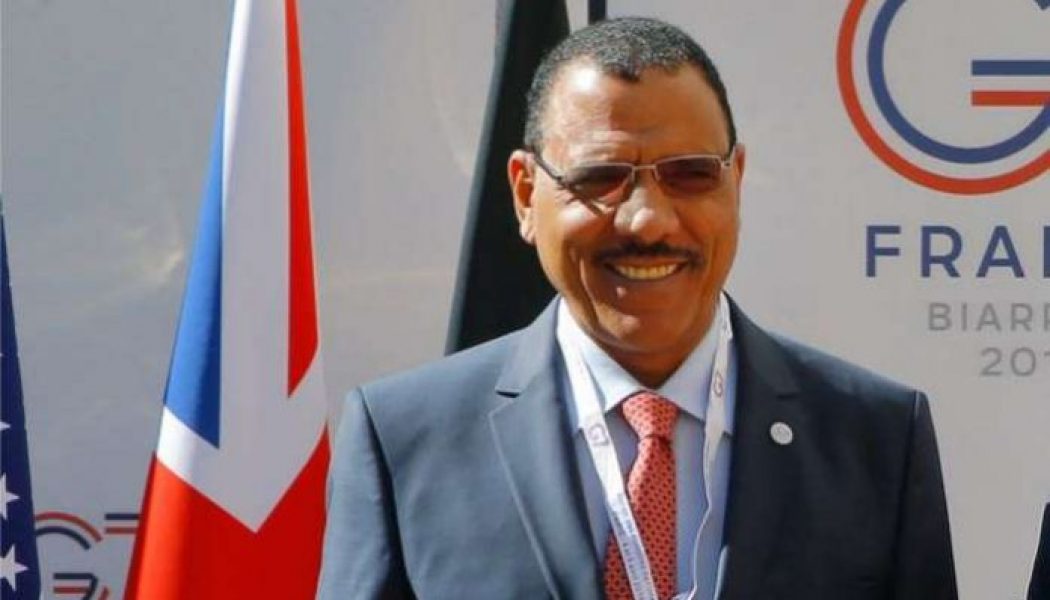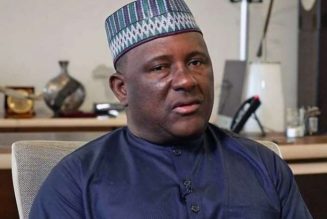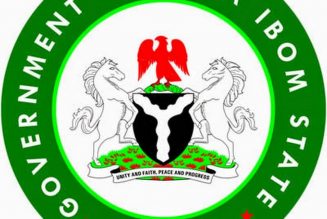
Niger’s new president Mohamed Bazoum lashed out on Friday at jihadists who have carried out devastating attacks on his country, accusing them of “war crimes” after he took the helm of the troubled nation.
The inauguration marked the first-ever transition between elected presidents in Niger’s six decades of independence from France — a historic moment that has been widely praised.
But the Sahel country’s problems were deeply underscored in the run-up to Friday’s ceremony, after a string of jihadist massacres and an alleged attempted coup just two days before the handover.
Bazoum hit out at “terrorist groups whose barbarity has exceeded every limit.”
These groups “carry out large-scale massacres of innocent civilians, and in doing so, commit real war crimes,” Bazoum declared.
Niger is being hit by insurgents linked to Al-Qaeda or the so-called Islamic State (IS), crossing from Mali and Burkina Faso in the west, and by Boko Haram, crossing from Nigeria in the southeast.
Thousands of people have been killed, and hundreds of thousands have fled their homes.
Since the start of this year alone, more than 300 people have been killed in three attacks in the west.
In its campaign to roll back the threat, Niger’s diplomatic efforts “will be centred on Mali,” Bazoum said.
IS-linked insurgents are based in Menaka and Gao, in eastern and central Mali respectively, said Bazoum.
Combatting them “will be very difficult so long as the Malian state does not exercise full sovereignty over these regions,” he said.
“The current situation in Mali has a direct impact on domestic security in our country.”
Bazoum has previously ruled out any talks with the jihadists.
“We cannot envisage any dialogue of any kind so long as there is a single Nigerien jihadist chief, a single jihadist base on our territory,” he said in a recent interview with the French media channels RFI and France 24.
– ‘Attempted coup’ –
Bazoum, 61, is a former interior minister and right-hand man of outgoing president Mahamadou Issoufou, 68, who has voluntarily stepped down after two five-year terms.
Bazoum won a runoff vote for the presidency in February with 55.6% of the ballot, according to official results contested by his opponent, Mahamane Ousmane.
His inauguration has been showcased as a democratic watershed in a country that has suffered four coups in its history, most recently in February 2010.
Reminders of that volatility came in the early hours of Wednesday when gunfire broke out near the presidency in the capital Niamey.
The government announced an “attempted coup” had been thwarted — a “cowardly and regressive act which sought to threaten democracy and the state of law”.
The alleged coup leader is an air force officer in charge of security at Niamey’s airbase and is being “actively sought”, a source within Niger’s security services told AFP on Wednesday.
Another security source said, “a few members of the army” had been behind the coup but had been prevented from approaching the presidential palace by the elite Presidential Guard.
“Some arrests” were made, the source said.
UN Secretary-General Antonio Guterres was among worried foreign leaders, calling on the armed forces “to strictly abide by their constitutional obligations”.
In addition to insecurity, Bazoum is tasked with easing poverty in a country ranked the poorest country in the world, according to the benchmark of the UN’s 189-nation Human Development Index (HDI).










